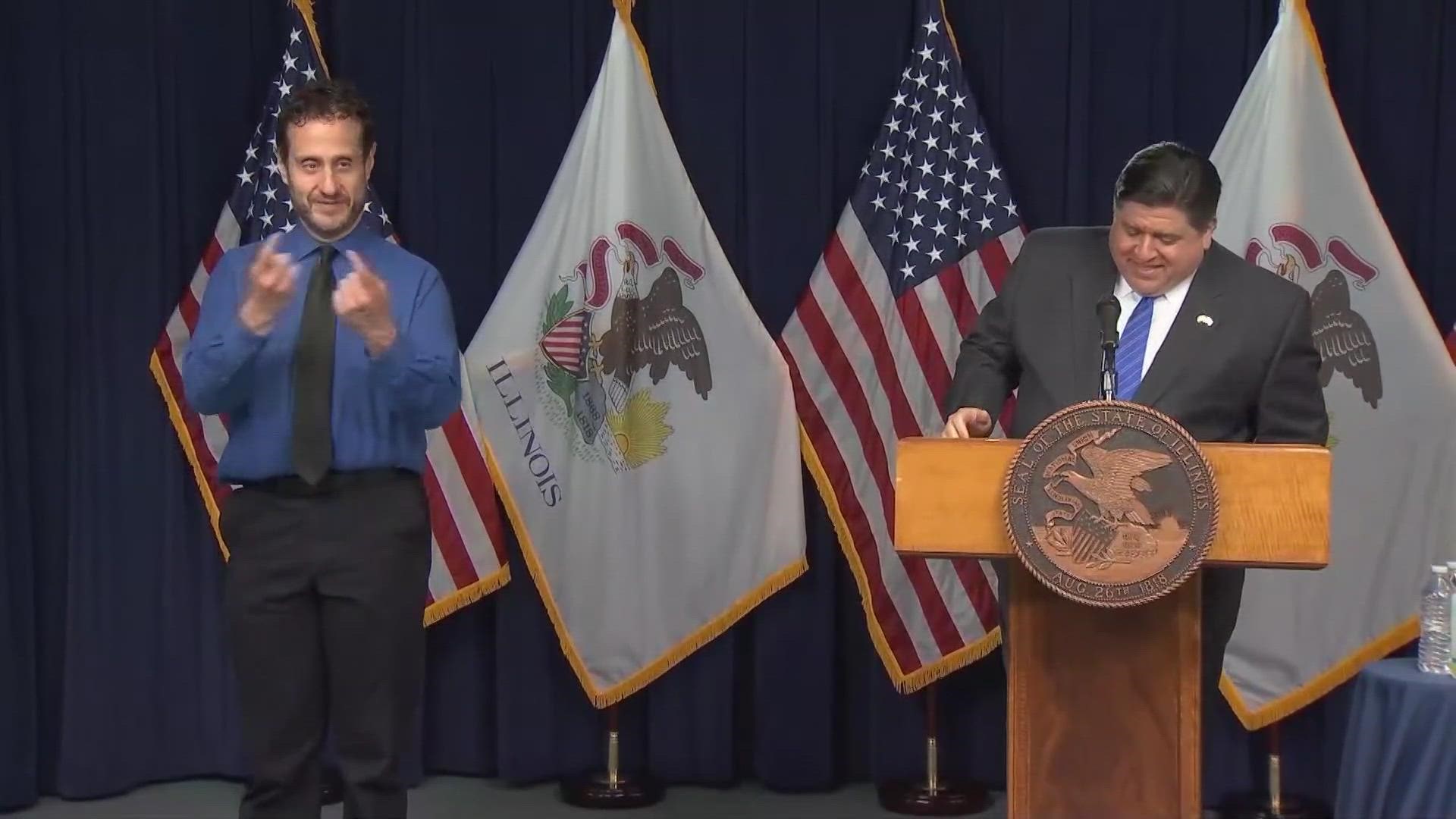CHICAGO — Illinois Governor J.B. Pritzker and Illinois Department of Public Health Director Dr. Ngozi Ezike announced a new COVID-19 mitigation plan to prevent a resurgence of cases.
As states across the country experience a surge in new cases, Illinois has lower hospitalization and infection rates and one of the highest rates of testing in the country, the governor’s office said in a press release.
The governor’s office said the state is in the strongest position to fight the virus since the pandemic began with more than 30,000 tests per day, 1,450 contact tracers, a large amount of PPE and hospital surge capacity.
“Illinois now has the lowest infection rates among all our neighboring states and one of the lowest positivity rates in the country – and it’s because of the individual actions of millions of our residents,” said Pritzker. “It’s imperative that individuals, families, workers and businesses follow the recommendations doctors have given about vital mitigations and that we act quickly if we see any outbreaks and upticks, signs that could lead to a surge of coronavirus infections.”
The plan outlines three tiers of general and industry-specific mitigations that will be applied on a regional basis based on the 11 Emergency Medical Services (EMS) regions, the release said.
These metrics will be used to determine when the spread in a region will require additional mitigations:
- Sustained increase in 7-day rolling average (7 out of 10 days) in the positivity rate and one of the following severity indicators:
- Sustained 7-day increase in hospital admissions for a COVID-19 like illness
- Reduction in hospital capacity threatening surge capabilities (ICU capacity or medical/surgical beds < 20%)
- Or three consecutive days averaging ≥ 8% positivity rate
Some strategies in higher-risk settings, like indoor bars and restaurants, will be automatically applied in a region that meets resurgence criteria to prevent spread of the virus.
Emergency Medical Services Regions
The state has expanded its Emergency Medical Services Regions to 11 regions. Expanding the regions allows for “a more granular approach in this phase of the response to COVID-19.”
The new regions are:
- North: Boone, Carroll, DeKalb, Jo Daviess, Lee, Ogle, Stephenson, Whiteside, Winnebago
- North-Central: Bureau, Fulton, Grundy, Henderson, Henry, Kendall, Knox, La Salle, Livingston, Marshall, McDonough, McLean, Mercer, Peoria, Putnam, Rock Island, Stark, Tazewell, Warren, Woodford
- West-Central: Adams, Brown, Calhoun, Cass, Christian, Greene, Hancock, Jersey, Logan, Macoupin, Mason, Mason, Menard, Montgomery, Morgan, Pike, Sangamon, Schuyler, Scott
- Metro East: Bond, Clinton, Madison, Monroe, Randolph, St. Clair, Washington
- Southern: Alexander, Edwards, Franklin, Gallatin, Hamilton, Hardin, Jackson, Jefferson, Johnson, Marion, Massac, Perry, Pope, Pulaski, Saline, Union, Wabash, Wayne, White, Williamson
- East-Central: Champaign, Clark, Clay, Coles, Crawford, Cumberland, De Witt, Douglas, Edgar, Effingham, Fayette, Ford, Iroquois, Jasper, Lawrence, Macon, Moultrie, Piatt, Richland, Shelby, Vermillion
- South Suburban: Kankakee, Will
- West Suburban: DuPage, Kane
- North Suburban: Lake, McHenry
- Suburban Cook: Suburban Cook
- Chicago: City of Chicago
Click here for a look at a map of the regions and more information on the mitigation plan.
More Coronavirus Coverage
- Charts rank COVID-19 risk involved in more than 60 activities | View lists
- St. Louis County considering changing sports guidelines after rise in cases among kids, young adults
- St. Louis County hiring more contact tracers as coronavirus cases increase
- COVID-19 in the heat: Why doctors worry this heat wave could be extra dangerous
- Here's how to report mask violations in St. Louis and St. Louis County
- Here are the guidelines Missouri schools should follow this fall

